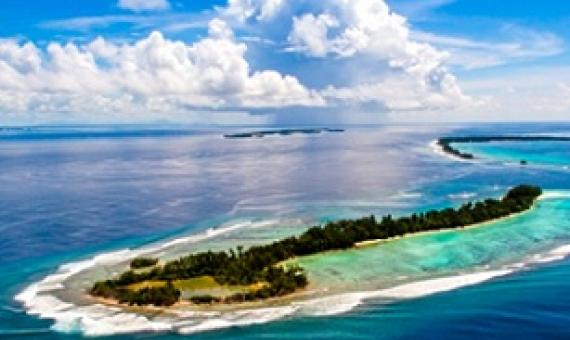The small Pacific nation of the Cook Islands passed legislation last week to create one of the world's largest ocean preserves...7,000 times its land size
The Northern Marianas are not the only islands in the Pacific to have a large marine protected area that restricts industrial fishing...Our Mariana Trench Monument Islands Unit is about 42,000 square kilometers and covers about 5% of the US EEZ around our islands.Click on the link below to read t
The Tui Macuata Ratu Wiliame Katonivere hopes other provinces in the country will make an effort to properly manage and protect their iqoliqoli.Click on the link below to read the full story.
Two University of Rhode Island students are sailing to remote islands in the Pacific Ocean to study any damage to coral reefs from climate change...The Phoenix Islands Protected Area, or PIPA, is one of the last remaining coral wildernesses on Earth.Click on the link below to read the full story.
Marine protected areas span a range of habitats, including the open ocean, coastal areas, inter-tidal zones, estuaries, and the Great Lakes.Click on the link below to read the full story.
Fiji's understanding of particular sensitive sea areas (PSSA) in the marine environment is expected to notch up another level, thanks to the latest collaboration by the Maritime Safety Authority of Fiji (MSAF), the Office for the London Convention/Protocol and Ocean Affairs and International
Solomon Island"s first ever national conservation initiative has been declared as The Arnavon Community Marine Park (ACMP) last week.
MPAs are generally designed to protect the habitats and biodiversity of today. Where there is a coral reef, for example, or where there is a particular species of interest, we design an MPA around it.
Palau has a rich heritage of conservation...In 2003, the Palau Protected Areas Network (PAN) was created to conserve Palau's unique biodiversity and culture, and is the country's
Oceans mean the whole world. They provide us food. They offer shelter to many species that enable life to exist on earth. They protect us from the impacts of climate change. Unfortunately, we are exploiting them, pushing ocean ecosystems to their limits.







